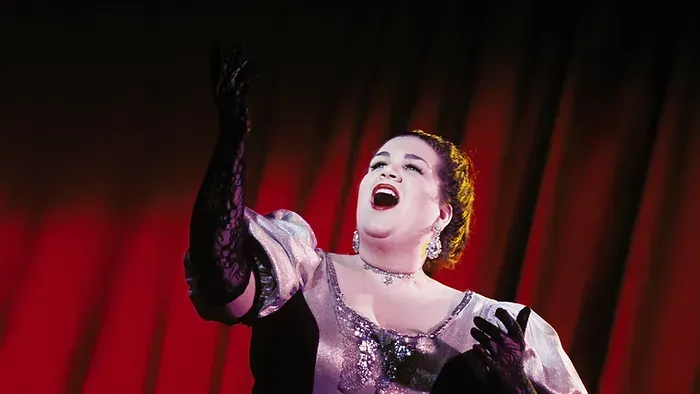
Check Out The Blog

No, You Don't Need to Practice 2 Hours Every Day
No, You Don't Need to Practice 2 Hours Every Day

When I was a second-year undergraduate music major, we were given these garish, bright-orange practice cards, so neon that you could practically see them from space, that we were told to use to log our weekly practice hours.
The weekly practice requirement was, I believe, twelve hours, with the recommended spacing of two hours six days a week.
This requirement had existed my first year, too, but it wasn’t until my second year that we were required to track it, using those stupid, bright-orange cards. At the end of the week, our teachers had to sign off on our log, and at the end of the semester, it counted toward your grade for your private lessons. If you hadn’t reached the required number of hours over the course of the semester, there was no hope of getting an A, no matter how good your jury was or what progress you had to show for your work.
I’d had parents and teachers breathing down my neck to practice my entire life, and so

when I got to college, I finally felt like practicing was something I was choosing, something I was doing for me and for my own improvement. I finally felt I had some autonomy over my practicing - until my sophomore year, when they introduced those bright orange cards. I felt like a child again, with an adult “checking up on me,” rather than a capable, responsible young adult who could be trusted with her own musical development.
Not only that, but my vocalist peers and I immediately knew that two hours of singing, six days a week, on top of 8+ hours of ensemble rehearsals and 1-2 hours of lessons and coachings every week (none of which counted toward your practice hours), was not going to be vocally sustainable for very long.
So, because my vocalist friends and I were hard workers who cared about our grades as well as our musical progress, we came up with a lot of ways to practice that didn’t involve singing.

Listening to recordings, researching our repertoire, translating, reciting texts, score study, analysis of any kind, character work, and memorization work all counted toward practicing, as far as we were concerned. All of that, combined with the hours we would actually spend singing in the practice room, usually amounted to the requisite twelve hours per week.
I’m sure that the intent behind the practice cards was to make sure students were putting in the time it takes to improve and progress. I think that there’s nothing wrong with having some expectations around practicing. I even think that there are some situations where two-hour practice sessions might be helpful or even necessary - like when you’re preparing for a big role, or a lengthy recital, or some other project where there is a huge amount of music and level of stamina involved.
But asking 18-22-year-old singers to do it six days a week, on top of choir and chamber singers and lessons and coachings and whatever other projects you pick up along the way, is kind of a terrible idea. Because if they aren’t finding creative ways to practice that don’t involve tons and tons of voice use, they will either lie so they can get the grade, or attempt to fill those twelve hours a week with actual singing, and burn out their voices reallll fast.
Why? Because 18-22-year-old singers are baby vocalists whose instruments haven’t

yet developmentally matured, and who don’t have the technique to do all that vocal heavy lifting yet. That’s why they’re studying in college, after all - to learn techniques that will allow them to sing sustainably in the real world.
Now, I think there’s nothing wrong with tracking progress. In fact, I think a certain degree of tracking and logging is necessary if you’re hoping to improve at whatever it is you are doing. But here’s the problem with the practice tracking we had to do as undergraduates:
First, no one was monitoring the quality of the work. Looking back, this is what bothers me the most. Nobody was monitoring whether we were practicing the things we should have been, in the way that we should have been, as opposed to just dawdling around wasting time in the practice room.

Second, they also weren’t monitoring results. Other than hours logged and a certain number of pieces learned each semester, nobody was telling or showing us what other quantifiable results we should be working toward. There was no one saying, “By the end of the semester, you should be able to execute technique x with your voice.” Or, “We expect you to be able to demonstrate technique y in your jury.” It was just, “Practice these hours and learn a handful of pieces across a few styles and languages and you’re good.”
Here’s the thing: if your tracking isn’t attached to results, and if you’re not examining the results and adjusting your process based on the results, there is really no point in tracking. It’s a waste of time.
Lastly, it’s not all just about the time spent. Let’s take learning new music as an example. Some people learn music very easily. Some people take much longer. I might learn a new piece in 15 minutes. Someone else might take 30 minutes. We’ve achieved the same result, even though we didn’t put in the same amount of time. Why should I be required to spend 30 minutes learning a new piece of music, when I could do it in 15?
What was the end result of all this?
For myself, as an undergrad, I was glad I was able to acquaint myself with lots of non-

vocal practice strategies. I think we shouldn’t underestimate the importance of score study and analysis and how that kind of slower-paced absorption can pay dividends the next time you practice with/on your physical instrument.
But the negative result was that I just practiced to fill time. I did endless amounts of exercises and vocalises and then practiced my pieces over and over again, with no real goals other than to sing accurately and “sound good,” whatever that even meant.
And the end result of that, was that, even when I went on to grad school and was taught how to work for reliable, sustainable results in my singing, there was still this voice in the back of my head that said things like, “You haven’t practiced for long enough. You didn’t do enough exercises. You didn’t spend enough time warming up.”
And the end result of that, was that I’d often spend too much time and voice on exercises and vocalises, and tire myself out before I was able to get into deep work on any of the repertoire I was doing.

The music is what matters, friends. Not the exercises. Exercises serve a purpose, for sure, but if you’re spending all of your time and vocal energy on exercises, you’re not going to get anywhere. You need to apply what you’re learning in your exercises in the context of actual music.
This is what separates the pros from the not-pros. The pros know they need to execute while singing actual music. They do whatever it is they need to do to make that happen. Their practicing is targeted at results. Because in the real world, results are what matters. Do what you need to do to get the result.
Do I think there’s a time for play and exploration in your practice session? Absolutely. Playing or singing without pressure or expectation on yourself, and just seeing what comes out, can be a really valuable thing to do. It opens up the creative side of your brain, gets you out of hyper-focus fix-it mode, and often creates more ease that you can take with you into your more technical work.
But when you’re working for a result, you need to make sure you’re actually doing things that will get you that result. And that’s what I didn’t learn how to do in undergrad. Not only was I not taught how to do results-oriented practicing - I wasn’t even really told what the expected results even were.
These days, I have a warmup routine that takes all of 15 minutes. I can shorten it, if necessary.

My warmup routine is about assessing how things are feeling, what things sound like that day, and what things are lining up well and what things are feeling sticky. If they’re sticky, I do what I need to do to un-stick them. It’s a time of calibration, rather than intense technical work. If I have extra time, I will do some exercises that target specific techniques, just so I can explore how they feel and sound in different areas of my voice without worrying about the additional demands of a musical context, but by and large, I save most of the technical work for my repertoire, where I can implement the technique to achieve a result. My practice sessions usually wrap in a tight hour.
And, speaking of tracking and logging…
I record a lot in my practice sessions. I whip out my phone and record a few bars of whatever piece I’m working on to see what things I can tweak to get my desired result. I treat it how I’d treat a student who’s in my studio for a lesson. I listen, make observations, assess, prioritize, and target. If I can get it to a point where it sounds good on my crappy phone speaker, then I know it probably sounds pretty good to an audience. Recording is a form of tracking, especially if you save the recordings and listen back days or weeks or months later. You can actually hear the progress this way.

I make notes at the end of each session about what I worked on, what went well, what didn’t go as well as I’d hoped, and what I’d like to target the next time. My undergraduate brain could remember this kind of stuff without writing it down, but thirty-whatever-year-old me who has a lot more adult responsibilities now, cannot. So, I write it down and consult it before my next session.
I’ve found that these two strategies have allowed me to use my practice time waaaayy more efficiently, which is a really good thing especially considering that I am a busy adult who does not have two entire hours to devote to practicing every single day.
No neon-orange card. No daily two-hour requirement. Just focused, results-oriented practicing.
That's why I've created a free guide for you: Nine Ways to Up-Level Your Practicing, which you can download here. These are hacks that I've been using in my practicing for better, more consistent results, and I want to share them with you!
Happy practicing!
